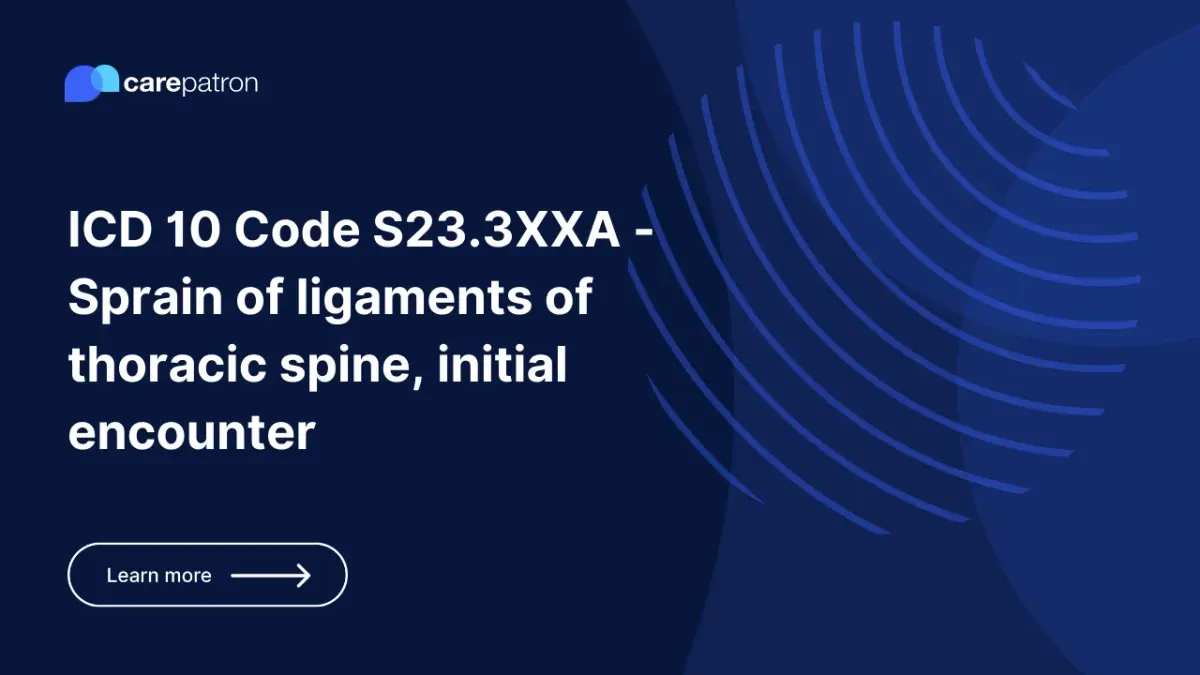
S23.3XXA – Sprain of ligaments of thoracic spine, initial encounter
Learn all about the ICD-10-CM code S33.5XXA, which is for diagnosing the sprain of the thoracic spine ligaments during the initial encounter with the patient. This little guide will include what its clinical description is, if it’s billable or not, what its synonyms are, what other ICD codes are related to it, and a few FAQs.
Use Code
Commonly asked questions
Yes, this ICD-10 code is billable.
It means that the patient is confirmed to have a thoracic spine ligament sprain, and it is their first time to be assessed by a certain provider.
Rest, exercise, ice compress (or bandages), physical therapy, steroids, and anti-inflammatory medicine.
EHR and practice management software
Get started for free
*No credit card required
Free
$0/usd
Unlimited clients
Telehealth
1GB of storage
Client portal text
Automated billing and online payments
